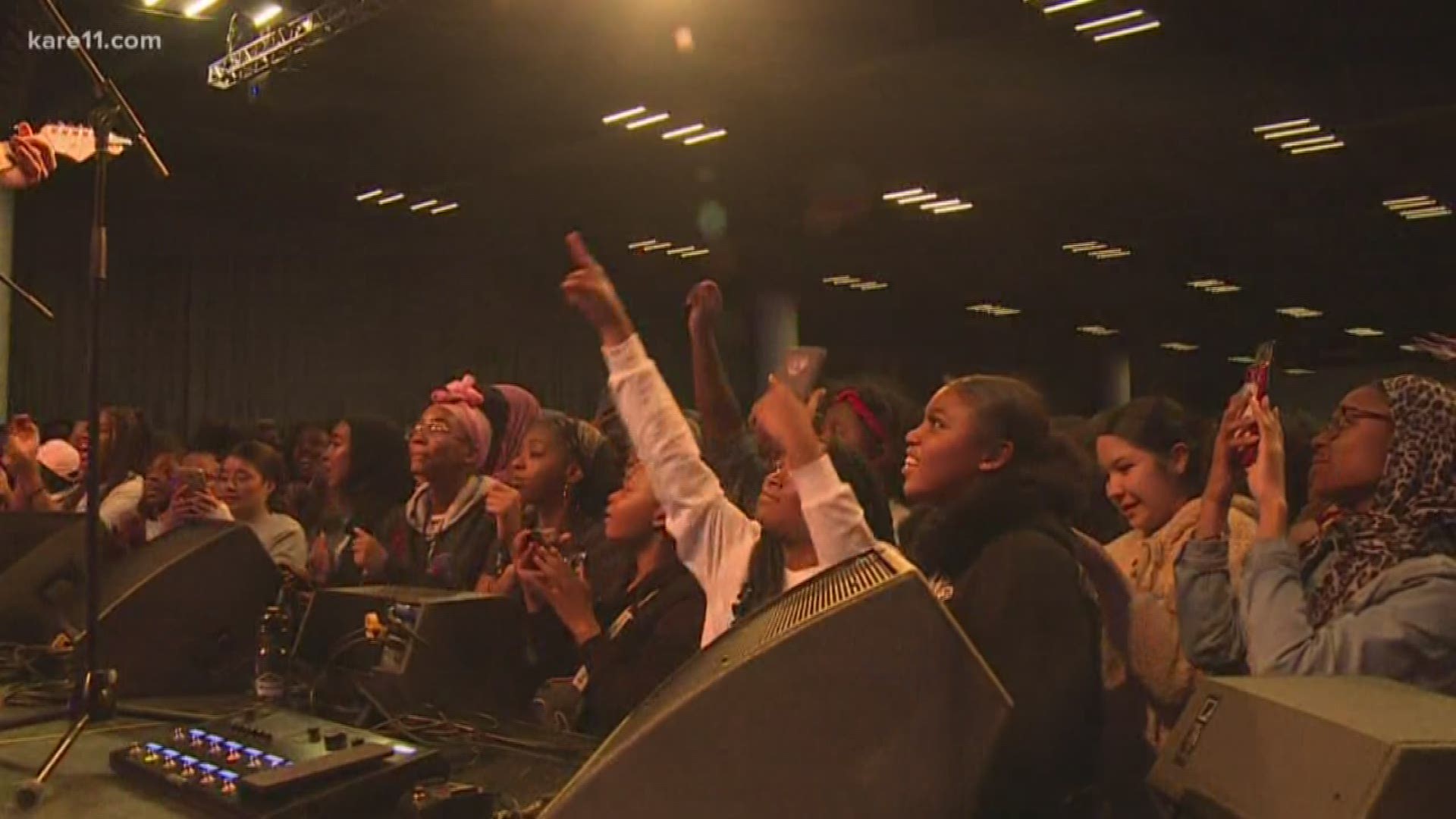Monday, more than 1,500 students from 50 school districts across the state participated in the 2019 student conference.
Inside the Minneapolis Convention Center, some students danced to live music performances. Others sang and snapped pictures of the performers. But they all learned. During moments, the conference seemed more like a convert and that captured students’ attention.
“If school was like a concert. I think everybody would go to school every day,” Iyonna Riddley said. “It is very possible. You just have to come together and work it out with your peers and students.”
The conference, powered by the Minneapolis Foundation, served as an open space for teens to create a blueprint for a school system offering education and access for all. They were asked to solve one challenge: what should education should look like by 2030?
The answers were as diverse as the group of students attending. When asked to answer that question with one word, these were some of the responses:
- Inclusive.
- Equal.
- Better response times.
- Inspirational.
- Fun.
- Engaging.
- Diverse and LGBTQ representation
Students designed their vision for physical spaces, technology, school culture, health and wellness and more. According to the conference website, students were required to discover a way for all students to be educated in a diverse (integrated) school setting. The future schools were not allowed to cannot be predominantly one race, such as black, white or latinx.
One challenge students told us, is the lack of AP classes, language courses s and special education services. One North High School student said she wants to study a language other than English but doesn’t have the opportunity at her school.
Another student, who identifies as Gabriella, said they want more information about how to prepare for life after high school.
“I really want something to where we are taught how to think, and problem solve. Not memorize. Not how to learn to remember. How to learn for myself should I need to,” Gabriella said.
Paula Forbes with Forbes Solutions served as a facilitator for the event.
“Our hope is that the information today will actually lead to a movement around student voice that will change the face of education by 2030,” Forbes said. “We want our schools to be equitable, integrated and equal. We are not meeting that challenge today and we heard over 1,000 student voices tell us what they need and want.”
In December, the Minneapolis Foundation is hosting an event with lawmakers and education leader around the state to review the data and stories collected from students at the conference.
To learn more visit https://www.thestudentconference.com/
The Minnesota Department of Education project by 2023, 987,133 students will be enrolled in schools across the state. An enrollment forecast for 2030 is not available.

